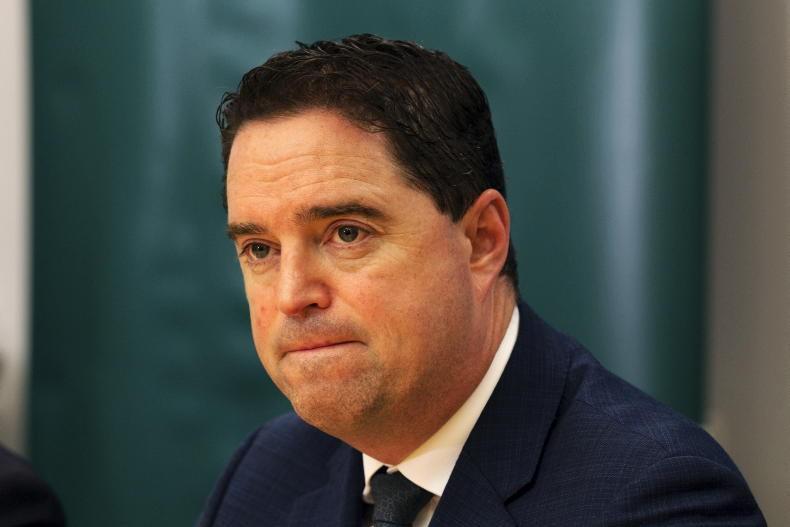Not before time, a gambling control bill is on the Oireachtas agenda and a new regime of regulation is imminent.
Campaigners concerned about addiction would like to ban gambling advertising altogether and to end the promotion of gambling through the sponsorship of sports teams.
The definition of gambling firms may also need to be broadened to include those who seek to inveigle the gullible into gambles disguised as investments.
It would be ungracious not to acknowledge at the outset the success of the Irish firm Flutter, which incorporates Paddy Power and Betfair, and owns sizeable operations in the United States and around the world.
Digital land-grab
Irish-based multinationals are few and firms such as CRH, Ryanair and Smurfit, and more recently Flutter, have risen from modest Irish origins to succeed on the big stage.
But the evidence is persuasive that gambling opportunities can become too readily available and the betting firms are engaged in a free-for-all digital land-grab.
This has led the founder of Paddy Power, now (as Flutter) a major player in the world gambling market, to change his mind about gambling regulation in this country.
This pioneering Irish bookmaker thinks the bookies need their wings clipped
Stewart Kenny, who departed the business with full saddlebags almost two decades ago, has lent his support and considerable credibility to those who think we have a serious social problem with gambling in Ireland. This pioneering Irish bookmaker thinks the bookies need their wings clipped.
Technology has transformed the bookie business. No longer a once-a-year punt on the Grand National, the smartphone has brought betting, and hence problem gambling, within reach of every kid with a smartphone.
Sports organisations have been on the alert. The GAA and the Irish Rugby Football Union have been declining offers of sponsorship from bookmaking companies in recent years, even though there is still no law requiring them to do so.
The Football Association of Ireland has taken no action, although several clubs have unilaterally decided that bookmaker money is no longer welcome.
Asian target
The position of the Premier League clubs in England is interesting. The top clubs, like Liverpool, Manchester United and Chelsea, do not take ads or shirt sponsorship from bookies, but clubs lower down the pecking order continue to do so.
But did you know that some of those perimeter ads in Chinese that you see during TV broadcasts from the stadiums of the top clubs are ads for online bookies targeted at the faraway audience in Asia?
The commercial people have presumably advised that bookie ads will not help sell kids’ shirts to parents in these parts, but can safely be beamed to the mugs in China.
The bookies have pivoted away from horseracing as the main betting medium and have focused increasingly on football, the better to recruit the kids.
There are forms of gambling that can readily be disguised as something else
Cigarette advertising via sports sponsorship has been banned for decades and there are controls on alcohol advertising in many countries. Those organisations which have, to their credit, taken voluntary action in Ireland are getting in ahead of the legislative ban which now appears inevitable.
Disguise
There are forms of gambling that can readily be disguised as something else. So long as people believe that there are clever schemes to make money without doing any work, there will be opportunities for scam artists and the internet platforms offer them a welcome.
Users of Google will have noticed uninvited ads for cryptocurrency exchanges trading bitcoin and the like. Since these ‘currencies’ have no utility as a practical medium of exchange, except for illicit transactions, their only source of value is as a pretend investment or ‘asset class’.
A unit of bitcoin might be worth more tomorrow if there is a new customer. Like all Ponzi schemes, when the supply of new customers runs out, the music stops and there will be stories of financial ruin.
Ads for cryptocurrency exchanges are already targeted at teenagers via smartphones and advocacy groups in the United Kingdom have called for proper regulation under securities laws.
But these artificial currencies, backed by no government and with no value other than the hope of future value, could more accurately be re-classified out of the securities space altogether.
Extra change
An extra policy change would apply controls on advertising: ads for crypto operators could be classified as gambling ads, restricted severely, or banned.
Which is not to say that one unit of bitcoin might not be priced above today’s price a week from now, just as Red Roses might win the 3.30pm at Roscommon.
There will be gambling so long as there is human nature, and some of it is harmless.
But there is convincing evidence of an epidemic of problem gambling, driven by online technologies, by the marketing expertise of the gambling companies and accommodating internet platforms.
Governments have been remiss in expecting sports bodies or internet platforms to voluntarily control the spread.









SHARING OPTIONS